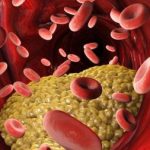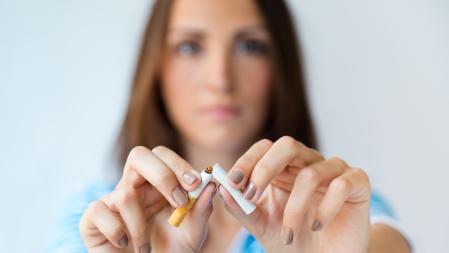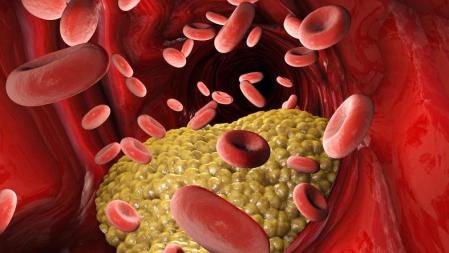



After many years enjoying the pleasures, without worrying about excesses, bad habits and a sedentary lifestyle, there comes a time in life when you decide to motivate yourself and take the path to health. It could be due to a medical scare, personal awareness or following the advice of those around you: you decide to take the bull by the horns.
You have switched to an absolutely healthy lifestyle, congratulations. You will lose weight, gain physical shape and your body will thank you in many ways. It will be necessary to see, however, if the damage that you have already done during the previous years is completely recoverable or if, at this point, there are aspects in which your body can no longer turn back.
The president of the Catalan Society of Internal Medicine of the Academy of Medical Sciences of Catalonia, Dr. Ferran Nonell, offers all the keys to what happens to the body when we go from bad habits to a healthy life, at a mature age.
What happens when you stop smoking?
Giving up tobacco will not cleanse our lungs or cardiovascular system overnight. It is not like resetting the phone to factory settings, but we will obtain a profit, even if it is not instantaneous.
As we detailed in a previous article, the benefits of quitting smoking extend between 20 minutes and 15 years after the last cigarette. That means that to reverse the risks of having a tobacco-related disease, it takes many years—at least one to five—to reduce the risks of various cancers. And it takes up to ten years to reduce the risk of lung cancer to half that of a smoker, although you will always have a little more risk than if you had never smoked.

It’s never too late to quit smoking, but the sooner you do it, the better.
What happens to your body between 20 minutes and 15 years after you quit smoking
“Imagine that you are a smoker in middle age, and you have smoked a pack a day since the age of 15,” Nonell introduces.
20 MINUTES AFTER THE LAST CIGAR
Only 20 minutes after the last puff, the ex-smoker already begins to notice how his blood pressure and heart rate drop. They are health values that must be controlled to reduce the risk of having cardiovascular problems in the medium or long term.
12 HOURS LATER
Within 12 hours of smoking the last cigarette, the level of carbon monoxide in the blood also reduces.
TWO WEEKS TO THREE MONTHS AFTER LEAVING IT
“Both blood circulation and lung function improve greatly,” explains the specialist.
FROM ONE TO NINE MONTHS WITHOUT TOBACCO
It greatly reduces cough and difficulty breathing. This is noticeable when doing daily exercise, such as running to catch the bus or climbing stairs. The person is already beginning to notice that they are not drowning as much. “In the bronchi we have villi called cilia, which serve to expel the harmful particles that we breathe,” he comments. “Tobacco paralyzes these cilia and when we haven’t smoked for a few months, they regain function and the risk of infection is reduced.”
A YEAR WITHOUT TOBACCO
After a year of quitting tobacco, the risk of having a vascular accident—such as angina—is reduced by half. Without going into the numbers of relapse into smoking, the fact that a smoker manages to go a year without returning is quite an achievement. After this time, the body has not even reversed the most pernicious effects of nicotine, tar, arsenic and all the associated poisons. More time has to pass.
FIVE YEARS WITHOUT TOBACCO
“From the fifth year onwards, the
risk of having cancer of the throat, pharynx, esophagus or urinary bladder,” continues the doctor. “And with regard to the risk of cervical cancer, after five years of having stopped smoking, it is already the same as that of a woman who has never smoked”. During this period, the risk of stroke is also reduced to the same probability as that of a non-smoker.
10 YEARS WITHOUT TOBACCO
It is time to talk about the risk of lung cancer, which is the organ most affected by the direct action of tobacco smoke. After 10 years, the risk of having it is half that of a smoker.
AFTER 15 YEARS WITHOUT TOBACCO
After 15 years of quitting smoking, the risk of having coronary heart disease – a heart attack – is the same as that of a person who has never smoked.
If we talk about harder variables, such as dying from any cause, Dr. Nonell reports that “the life expectancy of a smoker is 10 years lower than that of a non-smoker,” and adds that “stopping smoking before age 40, the risk of dying from a tobacco-related disease decreases by 90%.” Nonell also clarifies that there is no data from studies that have evaluated quitting smoking at age 50 or 60, but recognizes that “the younger you stop smoking, the more improvement there is.”
bad diet
“It has been proven that the so-called Mediterranean diet is the healthiest,” says the doctor. Reducing red meat and alcohol (if possible, eliminating it) already brings us benefits.” We must pay attention to cholesterol, but we have to take the figures with a grain of salt, since the level of bad cholesterol only depends on 10-15 % of the diet. “There are people who eat fat all their lives, who are obese and have normal cholesterol, and we all know someone who is thin, but has high cholesterol, probably due to genetic causes. There are even vegetarians with high cholesterol and atheroma plaques.”
The recommendation, likewise, is that the more we moderate fats, the better. And answering the main question, a diet that eliminates fat will not reverse the cholesterol plaques that we already have formed in the blood vessels, but eating a lot of fat can form new ones. “The only way to reverse plaques is with intense medication (statins), and not in all cases,” he explains.
The only way to reverse plaques is with intense medication (statins), and not in all cases

Formation of cholesterol in an artery.
Is it worth giving up alcohol?
Is it worth giving up alcohol? “Absolutely, yes. In our culture, alcohol is normalized. I wish we made the same change in attitude as we have done with tobacco in recent decades.” Nonell warns that alcohol is “the silent killer” because it affects the liver. “Luckily, now we have fewer infections such as hepatitis C, which was practically lethal. Now, likewise, it has been seen that fatty liver is not a harmless thing and can lead to cirrhosis,” he explains.
It has been seen that “stopping alcohol consumption can help reverse fatty liver and, over the years, contribute to recovering a healthy liver,” responds the specialist.
Quitting alcohol consumption can help reverse fatty liver and, over the years, contribute to regaining a healthy liver
Don’t let a sedentary lifestyle make us go crazy
A sedentary lifestyle is a bad habit and it is highly recommended to do physical activity. “Here people get confused. I have colleagues who are 50-55 years old who one day discover that they have to take care of themselves. And, if they don’t do anything, they start playing paddle tennis. It’s not about that: you can’t confuse activity physics with sport,” he clarifies. “Physical activity means not sitting, but walking. All the steps you take or stairs you climb will be welcome to prevent many diseases or reduce the risk.”
On the other hand, although sport is good, wanting to get to a competitive level when you have not done so before is practically synonymous with injury. “Competitive sport is not healthy,” he warns. “Now there are many marathons and from time to time the news comes out of a sudden death among the participants. If you like a sport, prepare well and get a physiotherapist to advise you in the stages of preparation,” he suggests. “And if possible, ask your family doctor or cardiologist to do a prior check-up with a stress test included.”
Ask your family doctor or cardiologist to do a prior check-up with a stress test included

Muscle as great anti-aging medicine.
Don’t neglect mental health
From the age of 50-55, everyone has losses. For example, children become emancipated and start their lives, there are separations or divorces, we lose loved ones and we are left alone…
“Unwanted loneliness is not healthy, in any way. This leads to other changes, such as eating poorly, doing less physical activity…”, explains Nonell. “You have no one to take care of you. Social prescription is advisable, that is, encouraging social activities that help to have a good state of mental health. Social networks, used well, can help a lot in this sense. If we avoid anxiety and depression, we will keep the rest of the factors of a healthy life in good condition.